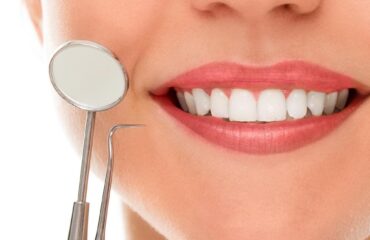Dental care is essential for maintaining overall health and well-being at every stage of life. From the emergence of the first baby tooth to the challenges of aging, oral hygiene plays a crucial role in preventing various dental issues. Here are some age-specific tips for dental care to ensure a healthy smile throughout life.
Children:
- Early Start: Begin oral care early by wiping your baby’s gums with a clean, damp cloth. As teeth emerge, switch to a soft baby toothbrush.
- Fluoride Use: Use fluoride toothpaste in small amounts once your child has teeth. Fluoride strengthens enamel, helping to prevent cavities.
- Regular Check-ups: Schedule your child’s first dental visit by their first birthday. Regular check-ups can catch potential issues early and establish good oral hygiene habits.
- Healthy Diet: Encourage a balanced diet rich in fruits, vegetables, and dairy. Limit sugary snacks and beverages, as they contribute to tooth decay.
- Teach Proper Brushing: Show your child how to brush their teeth using a small amount of toothpaste and a gentle circular motion. Supervise until they can brush independently.
Teens:
- Orthodontic Care: Many teens undergo orthodontic treatment. Ensure they follow the orthodontist’s recommendations and maintain proper oral hygiene with braces or aligners.
- Monitor Wisdom Teeth: Wisdom teeth typically emerge during the teen years. Regular dental check-ups can monitor their development and address any potential issues promptly.
- Avoid Tobacco and Limit Sugars: Emphasize the dangers of tobacco use and the importance of limiting sugary foods and drinks. These habits can have long-term effects on oral health.
- Use Mouthguards: If your teen is involved in sports, ensure they wear a properly fitted mouthguard to protect their teeth from injuries.
Adults:
- Regular Dental Visits: Continue regular dental check-ups to detect and address any issues early. Professional cleanings can remove plaque and tartar, preventing gum disease.
- Proper Brushing and Flossing: Brush teeth twice a day with fluoride toothpaste and floss daily to remove plaque between teeth and along the gumline.
- Healthy Diet: Maintain a balanced diet with plenty of water, fruits, vegetables, and lean proteins. Limit alcohol, tobacco, and sugary snacks.
- Address Teeth Grinding:If you grind your teeth, consider a mouthguard to protect them. Teeth grinding can lead to enamel erosion and other dental problems.
- Monitor Gum Health: Pay attention to gum health. If you notice bleeding, swelling, or changes in gum color, consult your dentist promptly.
Seniors:
- Regular Check-ups: Continue regular dental visits, especially as you age. Aging can bring changes to oral health, and preventive care is crucial.
- Dry Mouth Prevention: Stay hydrated and address any medications causing dry mouth. Dry mouth can contribute to tooth decay and gum disease.
- Denture Care: If you wear dentures, clean them daily and visit your dentist for regular check-ups. Ill-fitting dentures can lead to discomfort and oral health issues.
Oral Cancer Screenings:
Regular oral cancer screenings are essential. If you notice any unusual changes in your mouth, such as sores or lumps, seek prompt dental attention.
Maintain Good Oral Hygiene: Continue brushing, flossing, and using an antiseptic mouthwash to maintain good oral hygiene and prevent dental issues.
In conclusion, dental care is a lifelong commitment that evolves with each stage of life. By following age-specific tips and maintaining regular dental check-ups, individuals can enjoy a healthy smile at every age. Consistent oral hygiene practices contribute not only to dental health but also to overall well-being.





